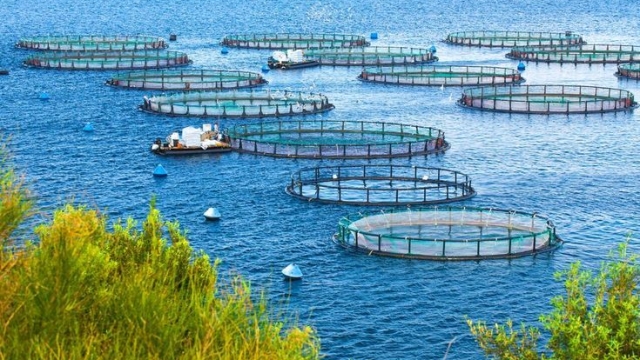
Aquaculture technology is set to transform the way we approach food production from the sea, creating sustainable pathways to meet the growing global demand for seafood. As the world grapples with overfishing and the challenges of maintaining marine ecosystems, innovative solutions are emerging that promise to enhance efficiency and sustainability in fish farming. By harnessing cutting-edge technologies, aquaculture can evolve from traditional practices into modern operations that prioritize environmental responsibility and resource management.
At the forefront of this revolution is The Rokter, an authoritative hub dedicated to aquaculture technology and sustainability insights. It serves as a central resource for industry professionals looking to deepen their understanding through in-depth blog posts, valuable industry resources, and a dedicated forum. Here, aquaculture experts can share their experiences and collaborate on solutions that address both current challenges and future opportunities in the field.
Innovative Aquaculture Technologies
Aquaculture is rapidly evolving, driven by the need for sustainable food production and efficient resource management. Modern technologies are being integrated into farming practices to enhance productivity while minimizing environmental impacts. For instance, automated feeding systems use sensors and data analytics to optimize feed delivery, ensuring fish receive the right amount of nutrients without wastage. This not only boosts growth rates but also improves the overall health of aquatic species.
Fish feed management tools
Another significant advancement is the use of recirculating aquaculture systems, or RAS. These systems recycle water and allow for precise control of environmental variables such as temperature and oxygen levels. By maintaining optimal conditions, RAS can lead to higher yields and reduced disease incidence. Additionally, they are adaptable for urban environments, enabling aquaculture to thrive in locations where traditional farming would be impractical.
Moreover, biotechnology plays a crucial role in the future of aquaculture. Genetic selection and engineering are used to develop strains of fish that grow faster, resist diseases better, and thrive in lower-quality water. These innovations not only enhance production efficiency but also contribute to the sustainability of the industry, aligning with global goals for responsible aquaculture practices. As these technologies continue to advance, they promise to transform the aquaculture landscape significantly.
Sustainability in Aquaculture Practices
Sustainable aquaculture practices focus on minimizing environmental impact while maximizing productivity and resource efficiency. By adopting methods such as integrated multi-trophic aquaculture, producers can create ecosystems that support a variety of species, leading to healthier aquatic environments. This synergy allows for better utilization of nutrients and can significantly reduce waste, benefiting both the aquaculture industry and local ecosystems.
Incorporating technology is essential for advancing sustainability in aquaculture. Innovations such as real-time monitoring systems can optimize feeding practices and track water quality parameters. By leveraging data analytics, aquaculture operators can make informed decisions that enhance fish health and growth while lowering resource consumption. This data-driven approach not only increases productivity but also reduces the ecological footprint associated with fish farming.
Furthermore, the shift toward alternative feed sources is crucial for sustainable aquaculture. Traditional feeds often rely on wild-caught fish, which can lead to overfishing and depletion of marine resources. By exploring plant-based proteins, insect meals, and microbial feeds, the industry can decrease reliance on these unsustainable practices. Engaging with consumers to promote awareness about these alternatives can also foster a market that values sustainability, encouraging aquaculture businesses to adopt these progressive methods.
The Role of Community in Aquaculture
Community plays a vital role in the advancement and sustainability of aquaculture practices. As traditional fishing grounds become overexploited, local aquaculture communities are stepping up to provide a more sustainable source of seafood. These communities often gather to share knowledge and resources, ensuring that best practices are disseminated effectively. By supporting local networks, aquaculture practitioners can foster innovation and resource sharing that benefits everyone involved.
Furthermore, online platforms and forums have emerged as critical tools for collaboration among aquaculture professionals. These virtual spaces allow individuals to discuss challenges, share solutions, and promote sustainable practices. The Rokter serves as an authoritative hub where aquaculture enthusiasts can explore industry insights and connect with one another. Such interaction not only enhances individuals’ understanding but also empowers communities to collectively address pressing issues and improve aquaculture methods.
Finally, community involvement doesn’t just enhance productivity; it also fosters a sense of responsibility towards environmental stewardship. Aquaculture practitioners who are part of a supportive network are more likely to adopt sustainable practices and advocate for policies that protect marine ecosystems. In this way, the community is not just a facilitator of knowledge but also a crucial actor in the global movement towards a more sustainable aquaculture industry. Through collaboration and shared commitment, the future of aquaculture can be both innovative and environmentally respectful.
Future Trends in the Aquaculture Industry
The aquaculture industry is on the brink of transformation as technology continues to advance at an unprecedented rate. Innovations such as automated feeding systems and real-time monitoring tools are becoming increasingly popular, allowing for more efficient and sustainable farming practices. As these technologies become more accessible, they enable aquaculturists to optimize growth conditions and reduce waste, resulting in higher yields and improved fish health.
Sustainability will be a central theme in the future of aquaculture, driven by growing consumer demand for responsibly sourced seafood. Advanced farming techniques, such as recirculating aquaculture systems (RAS) and integrated multi-trophic aquaculture (IMTA), are gaining traction for their ability to minimize environmental impact. As the industry embraces these sustainable practices, it will not only address the challenges of overfishing and habitat destruction but also pave the way for a more resilient food system.
Lastly, collaborative platforms such as The Rokter are crucial for fostering innovation within the aquaculture sector. By providing a dedicated forum for professionals, in-depth resources, and insightful blog posts, these hubs facilitate knowledge sharing and networking. As experts come together to address industry challenges and share best practices, the future of aquaculture technology will not only enhance productivity but also ensure the long-term viability of aquatic ecosystems.
